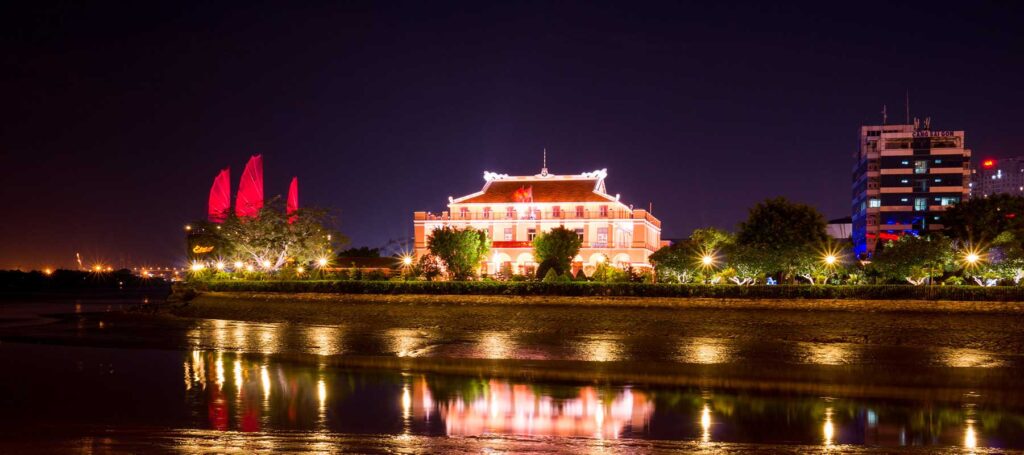Dragon Wharf – Ho Chi Minh Museum, located in Ho Chi Minh City, is a distinct museum that should not be confused with the Ho Chi Minh Museum in Hanoi. While the names may be similar, both museums share the common goal of showcasing the life and legacy of Ho Chi Minh. Situated at Nha Rong Wharf, Dragon Wharf holds historical significance as the original commercial port of the city on the Saigon River.
Visiting information
- Address: Ho Chi Minh Museum, 1 Nguyễn Tất Thành, Ward 12, District 4, Ho Chi Minh City, Vietnam.
- Location: The museum is located in the city center of Ho Chi Minh City, close to the walking street and next to the Saigon River.
- Opening times: The museum is open from Tuesday to Sunday, from 8:00 AM to 5:00 PM. It is closed on Mondays.
- Entrance fees: The entrance fee for adults is 40,000 VND (Vietnamese Dong), and for children and students, it is 10,000 VND.
You can take a taxi from anywhere in Ho Chi Minh City to the museum. It is recommended to use reputable taxi companies or ride-hailing apps like Grab. The journey from the city center can take around 10-15 minutes, depending on traffic conditions and exact location. The cost of a taxi ride may vary but is typically between 30,000 to 50,000 VND.
Tips
- Enjoy the scenic view of the river and skyline from the island where Dragon Wharf and Ho Chi Minh Museum are located.
- While there may not be a strict dress code, it is recommended to dress modestly out of respect for the museum’s significance as a tribute to Ho Chi Minh.
- Plan for approximately 1 hour to explore the exhibits and learn about Ho Chi Minh’s life and contributions.
- After visiting, continue your exploration by walking towards Nguyen Hue Walking Street to discover more of the city’s attractions and vibrant atmosphere.
- In the evening, the Dragon Wharf is closed, but the illuminated facade creates a beautiful sight, making it worth a visit to appreciate the stunning lights and ambiance.
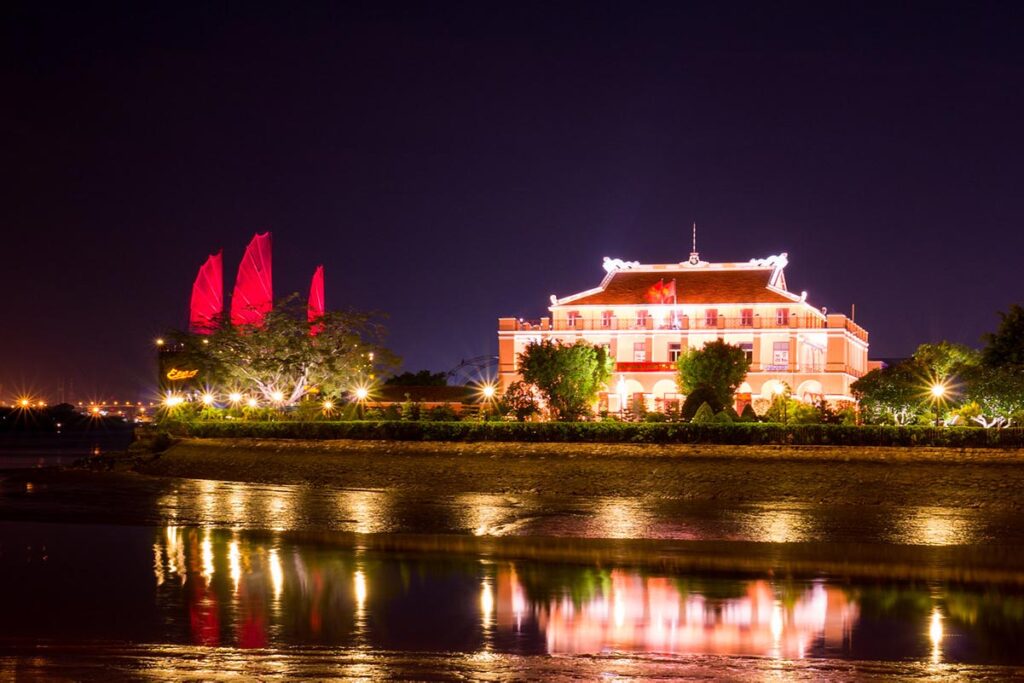
History of Dragon Wharf
Dragon Wharf, originally known as Nha Rong Wharf, has a rich history as the original commercial port of Saigon. Its construction began in 1862 and was completed in 1863 by the French transport company Messageries Maritimes. The wharf’s architecture blends European and East Asian influences, featuring unique details such as statues of two dragons on the roof.
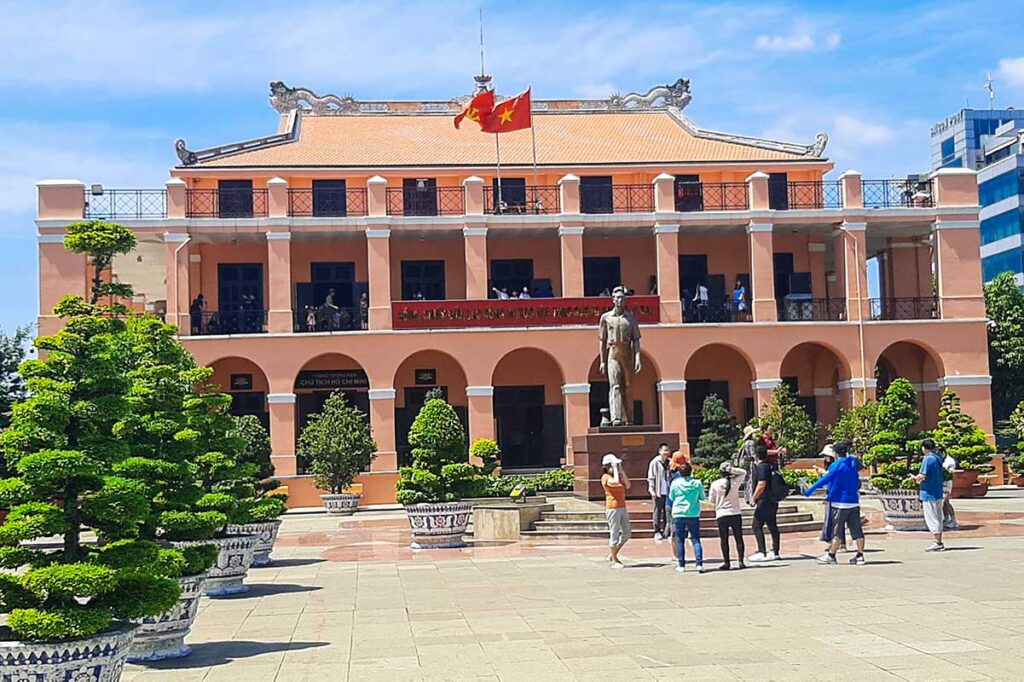
After the French army’s defeat and withdrawal from Vietnam in 1955, the port was handed over to the government of South Vietnam. In 1965, it served as a military base for the US army during the Vietnam War. However, in 1975, following the war, the Northern Vietnam government took control of the port and transformed it into the Ho Chi Minh Museum.
The significance of the museum’s location stems from an event that took place on June 5, 1911. It was on this day that a young man named Nguyen Tat Thanh, later known as Ho Chi Minh, departed from Dragon Wharf on a French ship named Amiral de Latouche-Tréville to embark on a revolutionary journey. In honor of Ho Chi Minh’s life and works, the museum was officially opened on September 2, 1979, attracting people who come to learn about the esteemed leader’s contributions to Vietnam’s liberation.
Today, the Dragon Wharf – Ho Chi Minh Museum stands as a memorial park, preserving the historical legacy of Ho Chi Minh and offering a glimpse into the country’s revolutionary past.
Ho Chi Minh Museum exhibition
Inside Ho Chi Minh Museum, you can explore a variety of exhibitions that delve into the life and accomplishments of President Ho Chi Minh. The museum features nine different areas, with six of them showcasing historical documents and objects related to the president’s life.
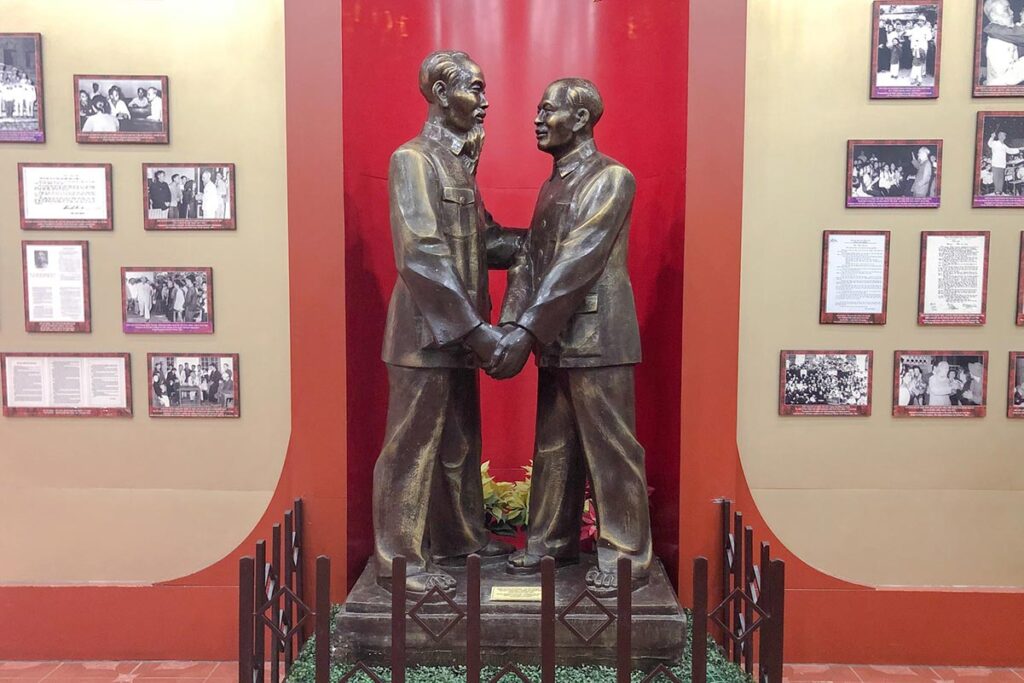
On the first floor, you can view the altar dedicated to President Ho Chi Minh and explore the rooms that highlight his journey and contributions. The second floor offers a guided tour through four themed exhibition rooms, providing insights into different stages of Ho Chi Minh’s life and revolutionary activities.
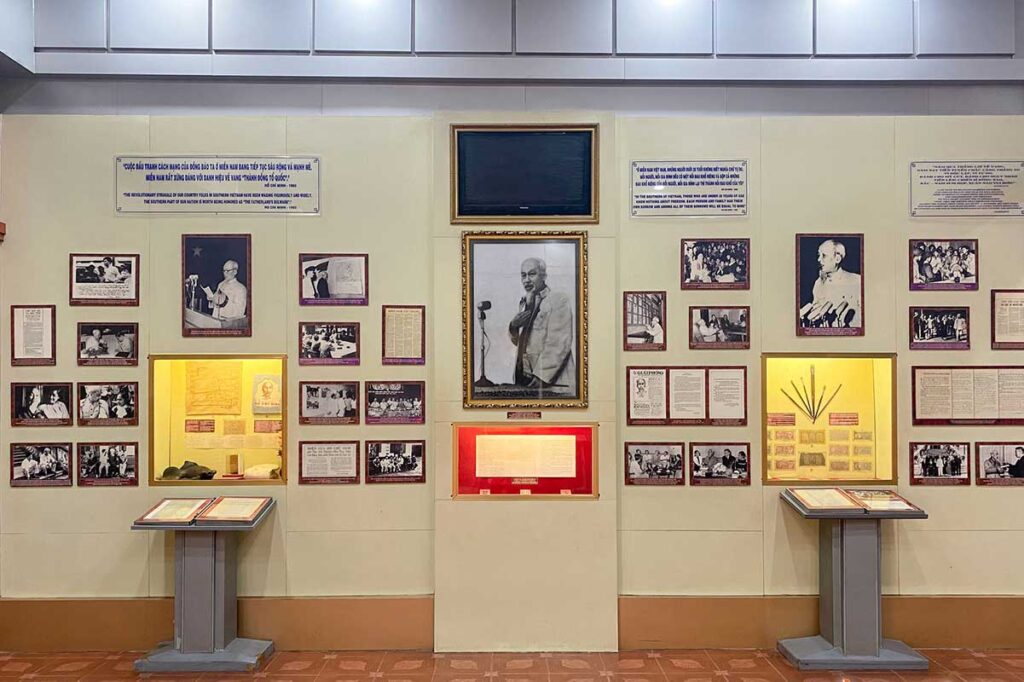
The first theme focuses on Ho Chi Minh’s early years, from his birth until his involvement in revolutionary activities, Marxism-Leninism, and the Vietnamese Revolution Party. It showcases his childhood, hometown, and his acceptance of Marxism-Leninism as a foundation for the Vietnamese Revolution Party.

The second theme highlights Ho Chi Minh’s fight against nationalism and colonialism, his efforts to create the main Party of Vietnamese workers class, and his secret leadership during the struggle against the French government’s colonial rule.
The third theme centers around Ho Chi Minh’s success in the August Revolution and the resistance against French colonial invaders. It showcases his leadership and the establishment of the Democratic Republic of Vietnam.
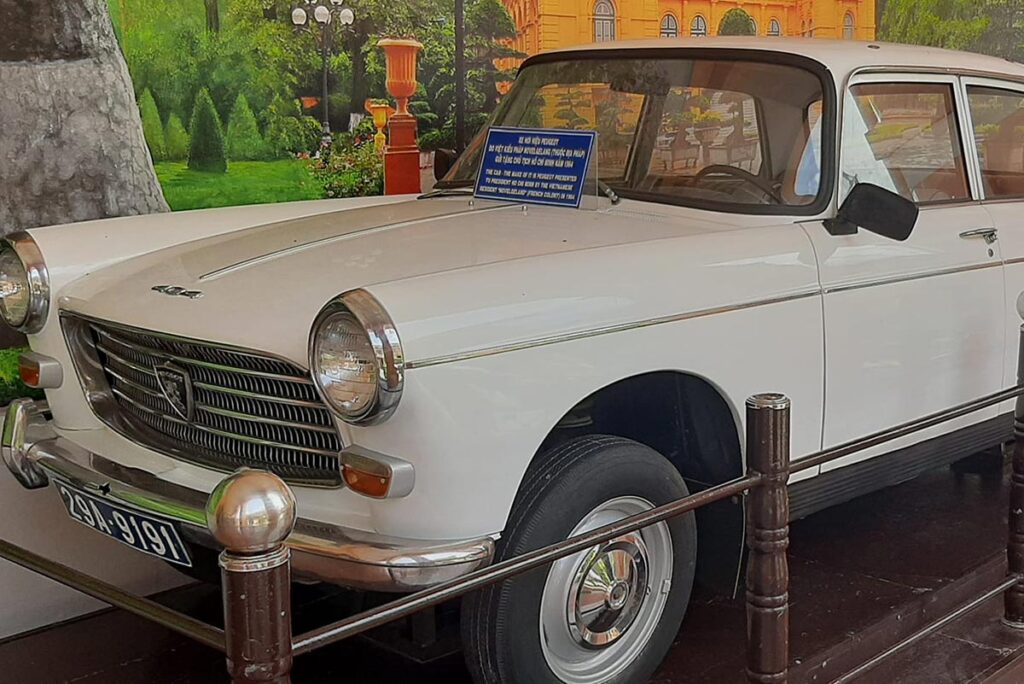
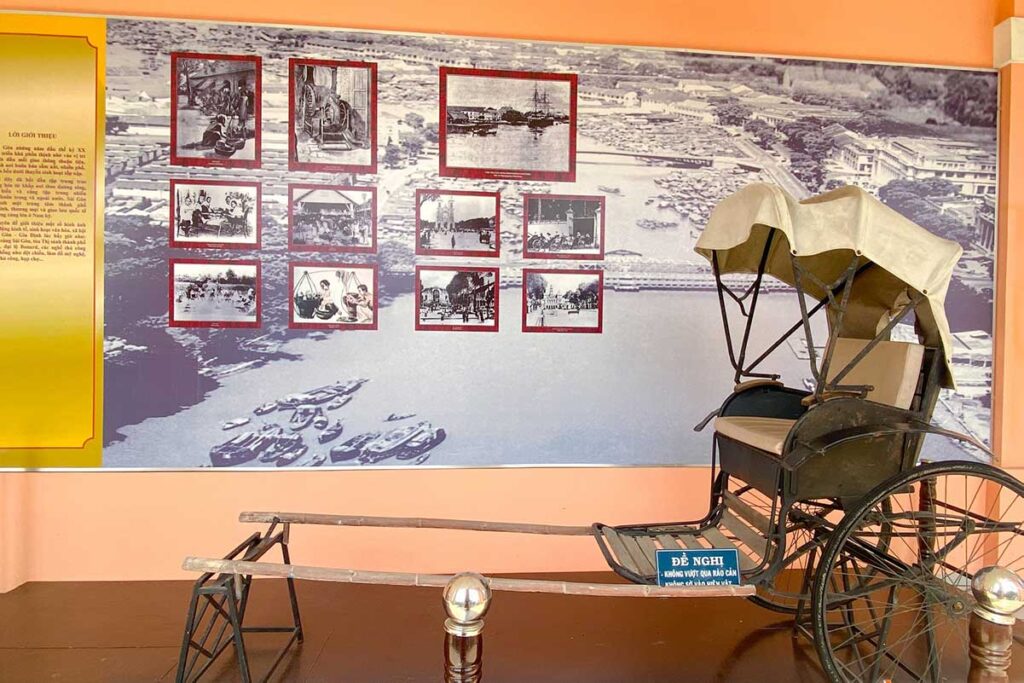
The fourth theme covers the period from 1954 to 1969, during which Ho Chi Minh led socialist revolutions in Northern Vietnam against the US and Southern Vietnam Army, with the goal of unifying the country.
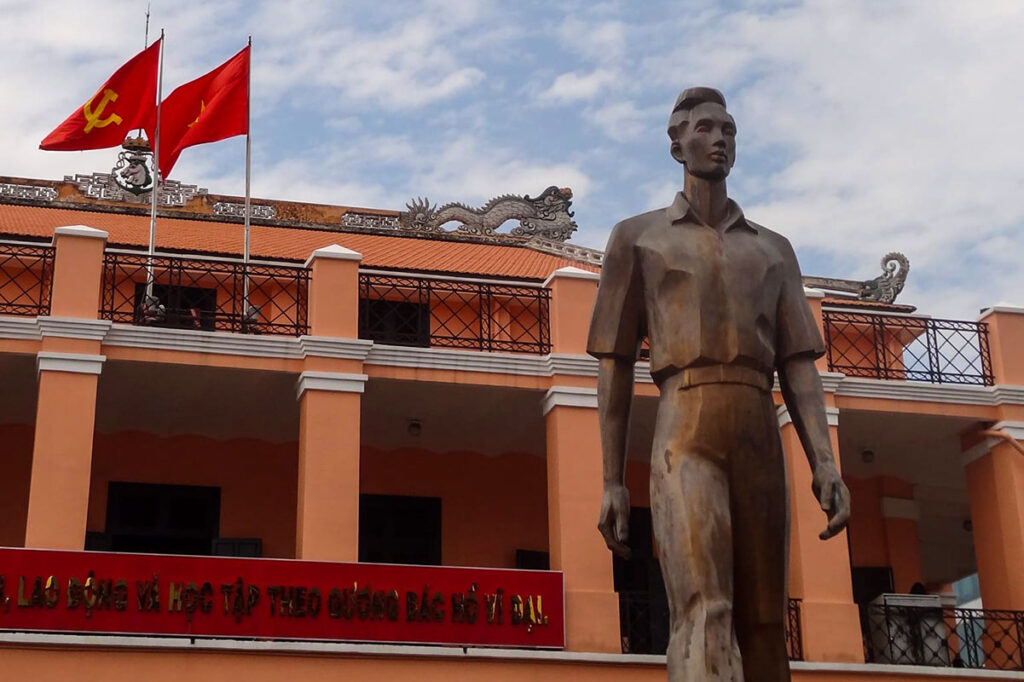
The museum’s outdoor area features a statue of Ho Chi Minh as a young man, known as Nguyen Tat Thanh, set in a peaceful garden. The surroundings of the museum are adorned with around 400 different types of trees, some of which are over two centuries old. Notable trees include a fig tree planted by the President of India during his visit in 1991 and trees gifted from Thailand as a symbol of friendship.
Other sights around Dragon Wharf and Ho Chi Minh Museum
The Dragon Wharf and Ho Chi Minh Museum are conveniently located in District 4, just across the river from District 1. If you cross the bridge, you’ll find yourself at the beginning of Nguyen Hue Walking Street. This vibrant street is a fantastic place to explore, especially in the evening, with its illuminated buildings.
From historic colonial structures like the Opera House and People’s Committee to modern skyscrapers like the Bitexco Financial Tower, there’s a mix of architectural styles to admire. Additionally, you’ll discover a wide array of restaurants and cozy coffee shops where you can unwind and enjoy the local ambiance.
